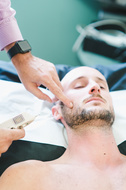
Why crowdsourcing treatment advice almost never works
It’s exhausting when you don’t have a system to work within. When every patient that comes in is like starting over and not knowing what to do. Every treatment is guesswork and not knowing if something will work, or why it did one time and not another. Or worse yet, why what you’ve used before flared up this new patient.
Too often practitioners work on assumptions or guessing. They base treatment on what worked for a past patient, or because a colleague said it worked on their patient.
And much of these recommendations come from Crowdsourcing for treatment advice on social media. I started a group that has over 7500 members. But I had to get away from it.
The issue is, absent using a working system, crowdsourcing is ineffectual at best, and reckless at worse. It was the same thing over and over. Tons of people hopping in offering random suggestions absent any real case history, and it was all piecemeal. It was unhelpful and only confused the practitioner who posted the original question even more. The practitioner wasn’t taught how to fish. They were just fed temporarily. But even worse, the fish wasn’t even edible. (Ok enough analogies)
Can you imagine if your patient knew you were trying some random technique because another practitioner offered advice on Facebook?! When you think about it that way it’s pretty crazy.
But asking for advice CAN be helpful when it’s done in a certain way. Asking questions on a forum is much more valuable when it’s within a system and we’re speaking the same language. You can build within a system. You can make sense of the patient when you have a base of knowledge to work from. When someone posts a history of the patient, better advice can be offered. This also helps practitioners grow and not just have a crutch. I want practitioners to ask questions and learn more than just “here try this”. It’s much better to know the why and empower them to be more self sufficient…to grow into getting the answers themselves and knowing how to find them. Offering treatment advice is much more profound in this way.
A forum works much better this way and it works extremely well on our Locals community, where EXSTORE is the system that everyone works under. Its just a more responsible - and very effective - way of running a forum.
Size doesn’t matter. Having a smaller more effective community is better. The community continues to grow, but not just for the sake of growth.

January’s webinar is here! This one is a favorite of mine because it includes the fascial lens when teaching the movement of the foot and ankle. It cover anatomy, fascia, and accessory motion of the foot and ankle. Definitely worth checking out.
Give this a read after you watch the video: https://pmc.ncbi.nlm.nih.gov/articles/PMC7689775/
73 / Female Leg Weakness and confusion
So I was working on this case for drop foot, and lower body weakness. I wanted to follow up on this case to discuss possible medication removal resulting in improved and consistent firing compared to when she was on the medication. Sudden improvements in mental state, confidence in movement, and improved strength.
There is a medication called Auvelity. Its a combination of Dextromethorphan and Wellbutrin (bupropion).
Dextromethorphan is normally used as a cough suppressant in OTC cough syrups from what i understand by reducing the overfiring of nerve impulses that cause cough. In higher doses though it can cause loss of some motor function, make it harder to coordinate movement, and can impair some receptors associated with memory. It can be classified in higher doses as a dissociative drug like ketamine. It is used recreationally by some people.
2-3 weeks off of this medication she feels alive and coordination is phenomenal but I saw changes week 1 ...
NIH Safety and Efficacy External Link
Found this the other day and wanted to share. Very good article to external link to show clinical research on many areas with acupuncture along with safety and efficacy in one place.
https://www.nccih.nih.gov/health/acupuncture-effectiveness-and-safety
Sorry for missing the comments — I spent the last four hours in clinic treating 20 patients using electro-acupuncture. The invitation for tonight’s 8:30 PM webinar still stands and is open to everyone, including those who may have expressed themselves less professionally here. Anonymous attendance is welcome for anyone who prefers it:
https://us02web.zoom.us/meeting/register/kCv6g4llS-qvwkg2wN8dJA















